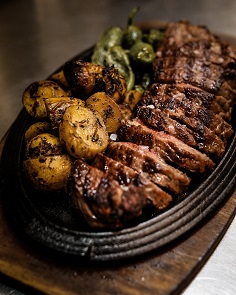The advent of technology has revolutionized the culinary world, and one such innovation that has significantly impacted cooking is the wireless meat thermometer. As compared to traditional thermometers, wireless meat thermometers offer a host of advantages that make them a superior choice for chefs and home cooks alike.
Let’s explore the reasons why wireless meat thermometers are better than their traditional counterparts.

Reason
In this part, we will talk about the reason why wireless meat thermometers are better than traditional thermometers in 10 aspects. If you want to know in detail, you can read on.
1. Real-time Monitoring
One of the most compelling reasons to opt for a wireless meat thermometer is its real-time monitoring capability. Unlike traditional thermometers that require constant physical presence, a wireless meat thermometer allows chefs to monitor the internal temperature of the meat from a distance.
This freedom enables multitasking and minimizes the risk of overcooking or undercooking, resulting in perfectly cooked meat dishes.
2. Convenience and Mobility
Traditional thermometers often come with cumbersome wires and limited mobility, which can be restrictive in a bustling kitchen environment. On the other hand, wireless meat thermometers offer unrivaled convenience and mobility.
The absence of wires allows for greater flexibility in maneuvering around the kitchen, making the cooking process more efficient and enjoyable.
3. Multiple Probe Capability
Wireless meat thermometers are designed with the capability to accommodate multiple probes. This feature is particularly valuable when cooking large cuts of meat or multiple pieces simultaneously.
Chefs can monitor different meat portions on the grill or in the oven, ensuring that each piece reaches its optimal doneness.
4. Accuracy and Precision
Accurate temperature readings are critical in achieving perfectly cooked meat dishes. Wireless meat thermometers employ advanced sensors and technology that ensure precise temperature measurements.
This accuracy eliminates guesswork, providing chefs with confidence in achieving consistent results.
5. Remote Alerts and Notifications
Wireless meat thermometers often come with the ability to set custom temperature alerts and notifications. Chefs can program the thermometer to alert them when the meat reaches the desired temperature, allowing them to take timely action and prevent overcooking.
This feature is particularly valuable when multitasking or attending to other aspects of meal preparation.
6. Smartphone Integration
Many wireless meat thermometers offer smartphone integration through dedicated apps. This integration allows chefs to monitor the cooking progress from their smartphones or tablets, even when they are away from the kitchen.
The app provides real-time temperature updates, cooking tips, and recipe suggestions, enhancing the overall cooking experience.
7. Long-range Connectivity
Wireless meat thermometers are designed to maintain a stable and long-range connection between the probes and the main unit. This extended connectivity range allows chefs to move freely around the cooking area or even entertain guests while staying informed about the meat’s cooking progress.
8. Enhanced Safety and Hygiene
The absence of wires in wireless meat thermometers contributes to enhanced safety and hygiene in the kitchen. Traditional thermometers with wires can pose a tripping hazard, and cleaning them can be cumbersome.
In contrast, wireless meat thermometers are easy to clean and handle, promoting a safer and more hygienic cooking environment.
9. Modern Design and Features
Wireless meat thermometers often boast sleek and modern designs, along with user-friendly interfaces. Many models feature backlit displays, temperature presets for various types of meat, and even voice prompts, making them intuitive and enjoyable to use.
10. Skill Enhancement
The convenience and precision offered by wireless meat thermometers contribute to skill enhancement in the kitchen. Chefs can focus on honing their cooking techniques and experimenting with various recipes, knowing that the thermometer will provide accurate temperature readings.

Conclusion
The advantages of wireless meat thermometers over traditional thermometers are numerous and game-changing. From real-time monitoring, convenience, and multiple probe capability to smartphone integration, extended connectivity, and skill enhancement, wireless meat thermometers elevate the cooking experience to new heights.
Whether in a professional kitchen or a home setting, choosing a wireless meat thermometer is a wise investment for any culinary enthusiast seeking to achieve perfectly cooked meat dishes with ease and confidence.
 Armand
Armand